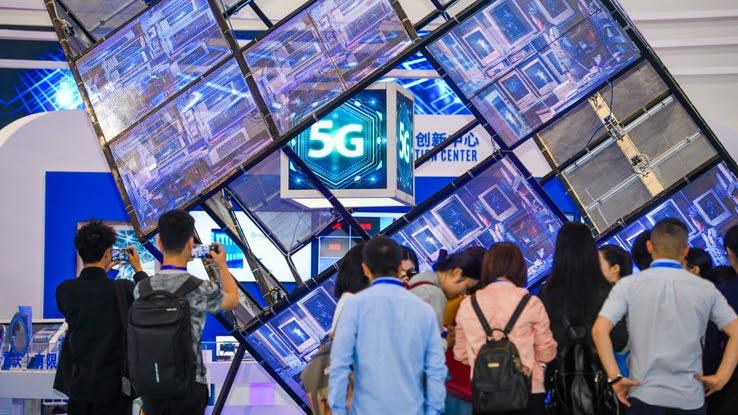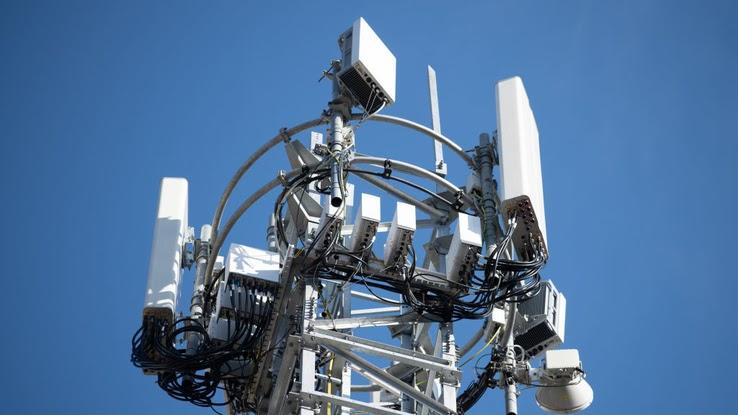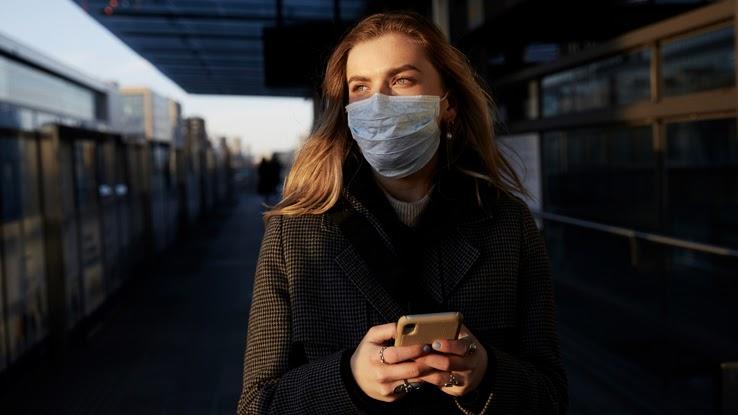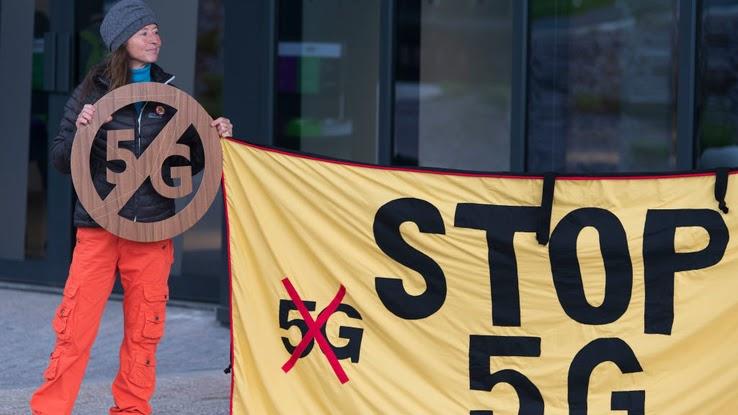Jitterbug Flip Easy to Use 4g Prepaid Cell Phone Graphite

5G, or fifth generation cellular wireless, is not only coming; it's already here. From cell phones to web browsing, 5G promises to enable new technologies while making existing ones faster and more reliable. Even so, not everyone is looking forward to it.
Some of the fears about 5G don't seem so scary, such as additional charges from cellular providers for customers. Others, however, are more alarming, with 5G networks being accused of causing everything from cancer to COVID-19. Is 5G really dangerous? This is what you need to know.
How 5G Works
While the technical standards for 5G were created at the end of 2017, it was only by 2019 that 5g service premiered in some countries. The technology is still being rolled out, and worldwide availability won't come about until around 2025. Although 5G networks in the United States are limited for the time being, all four major U.S. carriers now make at least some use of the technology, and phones designed for it are already on the market.

At a basic level, 5G works like all forms of cellular service: by sending and receiving radio waves from nearby base stations that each cover a particular cell, or area. What 5G does that previous generations of wireless technology did not is make use of "high-band" airwaves (20 to 100GHz), allowing it to provide more and wider channels for phones to work with. It also uses a kind of encoding called OFDM that makes sending information around 30 percent faster due to more efficient coding. To make the most of 5G, you need a phone built to take advantage of those high-band airwaves and a service provider that also makes use of them, although low- and mid-band 5G can also offer an improvement compared to 4G with the right phone.
5G offers less latency — the delay in sending and receiving signals — as well as better performance overall and the ability to connect many devices at once. The catch, however, is that high-band airwaves tend to degrade over distance; it's part of why they weren't used previously. To get around this, smaller and more numerous base stations are needed. If you've seen pictures of a technician installing 5G technology in the news or elsewhere, they were probably putting up one of these stations.
A common concern about 5G is whether or not it will cost more money. The short answer is that it might, but probably not by much. And best of all, it's optional.

To use 5G, you will need to spring for a new phone that can make use of it. However, a plan that includes 5G may not cost anymore at all. Verizon, for instance, offers a number of plans that bundle 5G access for an estimated $10 value, while T-Mobile includes some 5G access in its $35 and $45 dollar plans without specifying the value. You may need to pay for an unlimited data plan, but that's likely the worst of it. Of course, pricing models do change over time — unlimited phone plans were once removed and then later introduced — yet a serious spike in charges for 5G access is unlikely.
Even if the price is too much, you don't have to upgrade to 5G to keep using your phone. 5G was intentionally built so as not to put 4G phones out of commission, so it truly is your choice, at least for the foreseeable future. You also might not be missing out on as much as you might think. While 5G may enable everything from remote surgery to driverless cars in the future, in the short term, its effects will be limited while other kinds of technology catch up. If your streaming service isn't already providing you with HD programming, 5G won't change that. On top of all of that, 4G technology will likely see an increase in performance as more users switch to 5G.
What Not to Worry About …
New technologies are often met with apprehension, but those fears are often unfounded. Take cell phones, for example. While you may remember hearing claims that cell phone towers can cause cancer, according to the American Cancer Society, the radiation they emit is non-ionizing — it can't damage your DNA, which is how radiation usually causes health problems. Similarly, while urban legends about cell phones causing cancer continue to persist, there still isn't solid evidence for such a link despite how long the technology has been on the market. While one study in particular about rats and tumors is often cited as the cause for this idea, its results weren't conclusive, and further studies have failed to support the idea.

Fears of 5G causing cancer through radiation also seem to be without basis. Your television, computer and microwave actually emit more radiation than your cell phone, 5G or not, and while the directional nature of 5G waves means they sometimes cause you to be exposed to more radiation than 4G, when you're not using your phone, they actually expose you to less. Research on the subject should certainly continue, but as of now, there is no reason to fear radiation caused by 5G.
Similarly, the coronavirus pandemic was not caused by 5G. No virus has ever spread through radio waves, and while many things can affect your immune response, radio waves have not been shown to do so. This is one thing the international community is entirely in agreement on.
A small alarm for the environment should be raised. Making 5G happen for everyone means more cell towers that need to be built. This could potentially affect or harm ecosystems all over the world, so we should keep that in mind as we continue to improve our cellular experience.
… and What to Worry About
That isn't to say that there aren't legitimate concerns about 5G technology, however. Law enforcement (and corporations) already have the power to track your movements to a degree because of cell phones. If you're using an app that makes use of GPS, your location can be tracked to a high degree, but even if you don't, your cell phone itself can prove that you were within a mile or so of a particular base station as long as the device was on. And because 5G technology uses much smaller cells to operate, it can be used to pinpoint your location much more accurately — even to a particular building.

However, there's also a catch: 5G encryption is much better than 4G, so it might not be possible to use the technology's tracking potential unless either the hardware or software that powers 5G has a backdoor built into it for retrieving that kind of information. For instance, Chinese tech firm Huawei has been accused of designing its 5G equipment so that the company (and therefore the Chinese government) can access information that passes through it despite encryption, while the European Union continues to debate whether 5G encryption should be intentionally weakened so that law enforcement can continue to access cell phone data with a warrant.
How 5G technology will be used in the United States is an issue that continues to develop, so it's important not to jump to conclusions. Even so, the technology does raise concerns for law enforcement and privacy advocates alike.
Beyond 2020: The Future of 5G
Now that 5 has been around for a while, we are starting to feel the effects of 5G after some time. So far, the main effect of 5G is an improved experience with technology.
Not enough time has gone by to learn long-term effects of 5G. Some folks believe that until 5G is proven safe, we should not feel safe using it. Many feared that increased radiation from 5G either caused COVID-19 or weakened the immune system to the point where COVID-19 was more contagious, and that's why it spread so quickly.
This was not the case, but these fears are not unnatural or new. Deloitte Insights asserts that similar fears have been around since the onset of radio and radio waves. They go on to state that 5G is actually healthier than other networks, because 5G is designed to use less power and emit less waves. Deloitte is the latest in a long line of sources claiming the safety of 5G.
Hopefully, despite the cost and the slight panic, 5G turns out to be worth it. After the year we had in 2020, we deserve at least one nice thing.
Source: https://www.reference.com/science/5g-impact-cell-phone-plans-or-health?utm_content=params%3Ao%3D740005%26ad%3DdirN%26qo%3DserpIndex&ueid=9a7dffc6-4e8b-4281-bd73-73b2a4e438ea
0 Response to "Jitterbug Flip Easy to Use 4g Prepaid Cell Phone Graphite"
Enregistrer un commentaire